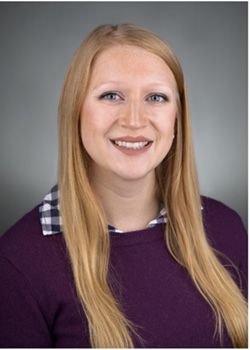
Dr. Alyssa Huff is a neurophysiologist whose work focuses on both the central and peripheral interaction of airway protective behaviors (swallow, laryngeal reflexes) and breathing. She received her bachelors in science at Western Kentucky University (Go TOPS!) where she remains an active member of the Alpha Xi Delta Fraternity.
Alyssa received her PhD at the University of Louisville in 2019 where she trained under Dr. Teresa Pitts, PhD CCC-SLP and found that swallow timing in humans is entirely dependent on lung volume. We also found swallow motor patterning is not only regulated by brainstem mechanisms, but also heavily influenced by spinal pathways, which suggested the importance of a vagal-spinal afferent balance.
Dr. Huff then went on to seek formal training in neuroscience with Dr. Jan Marino “Nino” Ramirez, PhD at Seattle Children’s Research Institute. She was awarded an NIH F32 and developed a freely breathing anesthetized in vivo preparation that records both swallow and breathing related nerves and muscles with access to the ventral brainstem. These techniques revealed 1) The inspiratory rhythm generator, known as the preBötzinger Complex, is not hard-wired to inhibit swallow, which explains how swallows can occur during inspiration, thus increasing the risk of aspiration. 2) The postinspiratory rhythm generator, known as the postinspiratory complex (PiCo) triggers swallow in a respiratory-phase specific manner.
During her postdoctoral training Dr. Huff developed a collaboration with Dr. Franck Kalume, PhD evaluating swallow and its coordination with breathing in a preclinical model of Leigh Syndrome. They found increased variability to the swallow motor pattern, disrupted breathing regeneration, and water-induced apneas. All of which likely contribute to weight loss and premature death seen in this mouse model. Exposure to chronic hypoxia prevented alterations to swallow and breathing physiology which resulted in weight maintenance and increased life expectancy.
Dr. Huff finished her postdoctoral fellowship in 2025 and opened her independent lab at George Washington University in the Department of Anesthesiology and Critical Care Medicine as an Assistant Research Professor. She was awarded the Rett Syndrome Innovation award funded by the International Rett Syndrome Foundation.